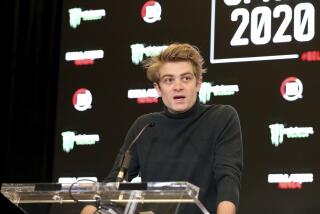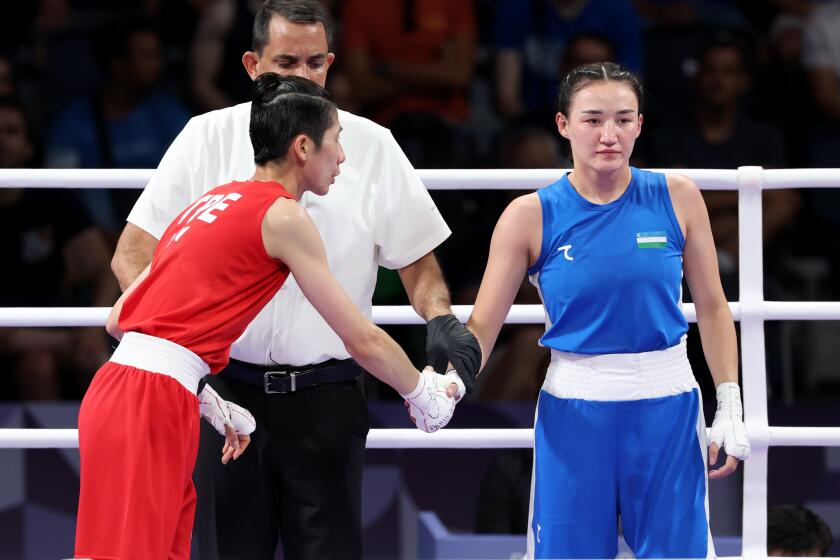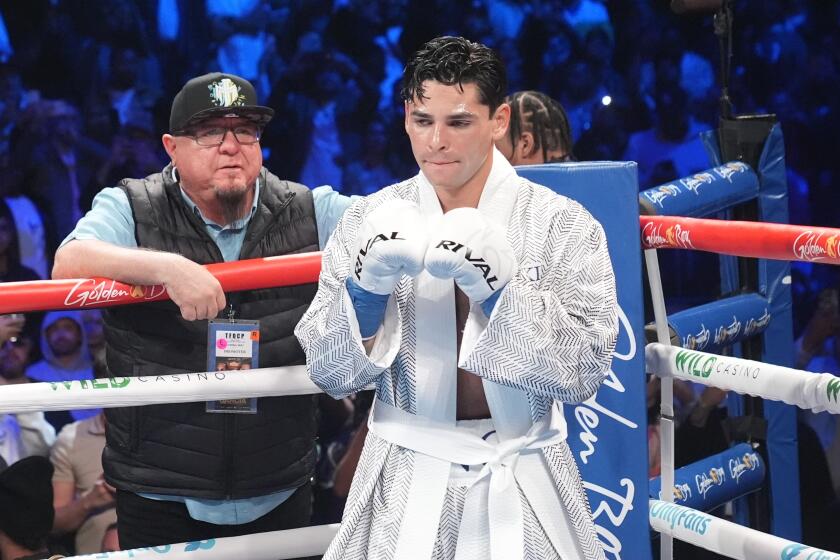Boxing referee Kenny Bayless discusses Canelo-Golovkin and the perception of Mayweather bias
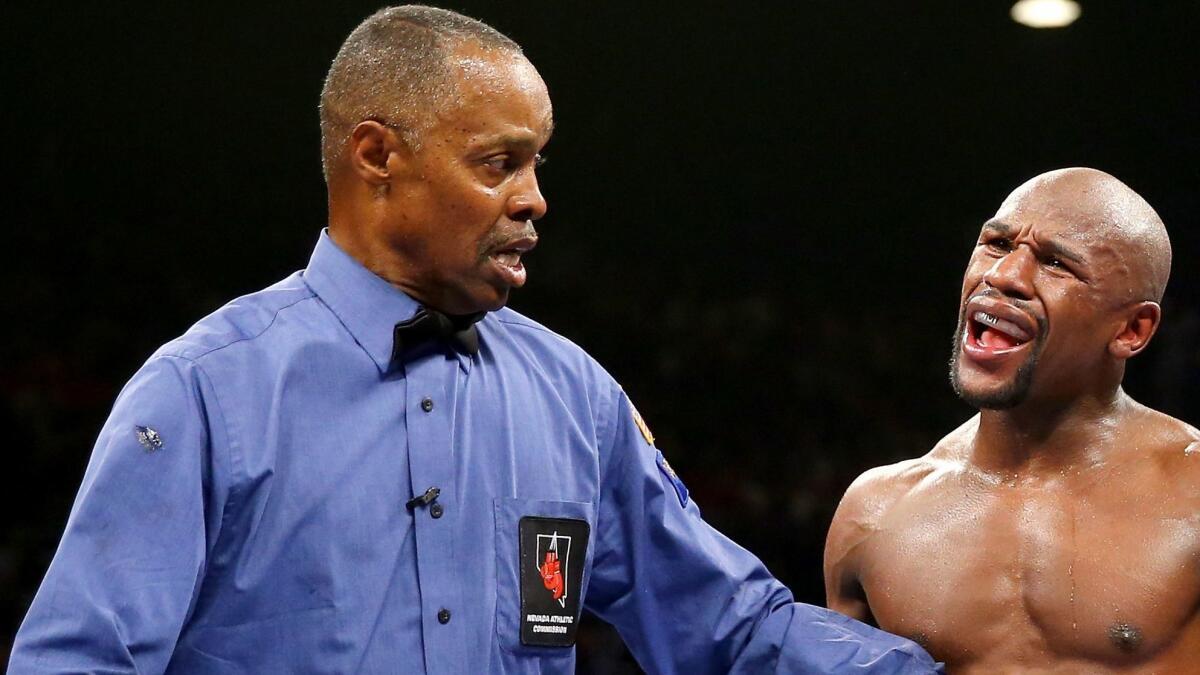
Reporting from HOLLYWOOD, Fla. — Since he’s been third man in the ring for the most lucrative boxing match in history, and is considered by many the best referee in the game, Kenny Bayless stands as the leading candidate to work the Canelo Alvarez-Gennady Golovkin fight should it happen in September.
Bayless, 66, was assigned to the May 2015 Floyd Mayweather Jr.-Manny Pacquiao bout, and he presided over Alvarez’s knockout of England’s Amir Khan in May.
“I don’t think that fight will be a problem,” Bayless said, referring to the Canelo-Golovkin match. “I’ve refereed Canelo a couple of times. I also did Canelo-Mayweather [in 2013]. I’ve never refereed GGG, but I’m a student of the game and I’ve followed [Golovkin’s] career and he fights clean.”
Bayless, discussing his work this week while attending the World Boxing Council convention, said his principles are rooted in pre-fight rules discussions, in which he seeks to effectively lay down the law about what is and isn’t allowed, and in astute diligence as the fight transpires.
“In seminars, I’ve often told younger referees, ‘In the heat of the battle, a fighter can do anything,’ ” Bayless said. “I’ve seen fighters remain perfectly clean fighters throughout their career, but in the heat of the battle, something upsets or distracts them, gets them off-key, and they may throw a low blow or a punch after the bell, or a head-butt. We have to be on top of it.”
Part of the job also entails not succumbing to attempts to manipulate his work in pre-fight talks with either fighters, cornermen or promoters.
That pre-fight spin gets “very intense,” he said. “But I don’t let it bother me because, usually, I have a little knowledge of both fighters, especially in the super-fights. I’ve followed their careers, either by watching them on HBO or Showtime or being in the ring with them. So when the camps say something like, ‘Watch his head,’ it doesn’t bother me because I will already address that in the dressing room beyond going over my rules like I normally do.”
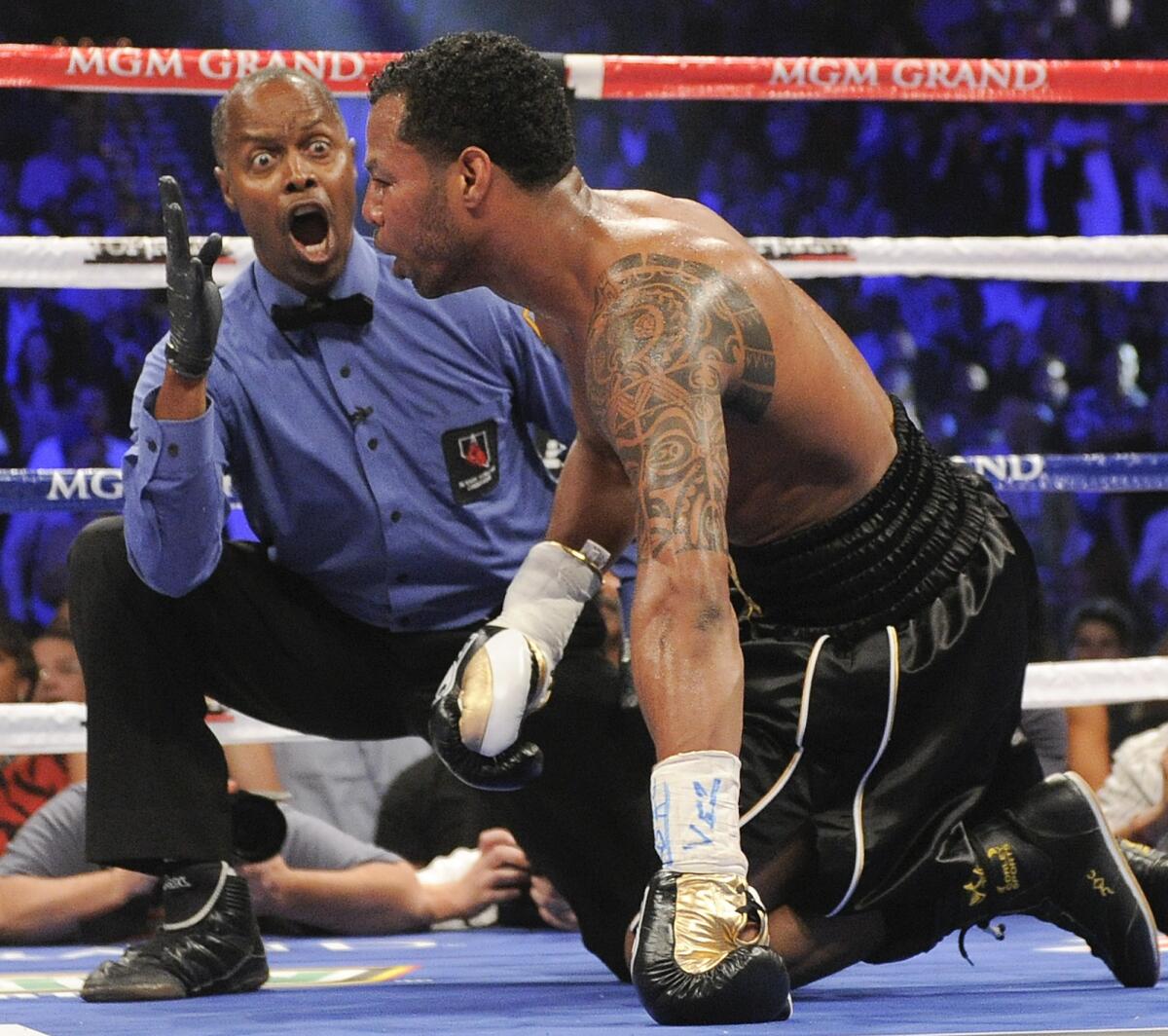
“What troubles me is what matters. I’m the one in there. I’m the one who has to make sure the fight is clean and fair to both sides.”
Even when there’s hostility over a concern, like the potential clashing of heads that came in the rematch of Shane Mosley and Fernando Vargas, Bayless said he effectively addressed how he’ll manage the bout in his rules instructions, and “I cleared up everything” to ensure a bout without similar drama.
Because of the prominence of his work, Bayless has been subjected to some criticism as a protector of sorts for Mayweather, who announced his retirement at 49-0 in 2015 but attended this convention and is likely mulling whether to return for a Pacquiao rematch in May.
“A lot of people don’t like [Mayweather’s] style of hit and don’t get hit,” Bayless said. “From what I see, he uses his movement to his advantage. A lot of people complain about it, along with his clinching. But he knows when to and when not to clinch, and he does it in a way that it doesn’t take away from the flow of a fight. So you just let it go.”
Mayweather found himself in early trouble with the clinching and punching of 2014 foe Marcos Maidana, with Bayless in the ring, and after Mayweather emerged with a victory, Bayless received some heat for being too quick to call off Mayweather.
“I got criticized over breaking them too quick, and the reason I broke them is that people don’t understand the difference between a clinch and a hold,” he said. “When Marcos came in, if it was a hard hold, I’d ask for a very quick break, but if it was a clinch, with me giving him the opportunity to punch out, that’s what we referees want to do.
“If you look at Marcos Maidana’s history, he does a few things that are not in the contour of boxing, and I’d refereed Marcos Maidana before, and I had taken points from him before for the things he had done.
“Now, I’m in this super-fight with Mayweather, knowing what he’s capable of doing, and in that fight, I still had to take a point because he nearly body-slammed Mayweather to the canvas once. People are going to decide to believe what they want to believe, and as a referee, I can’t let that bother me. I have to do my job for the state of Nevada or the different boxing organizations, with commissioners grading my work. All the boos and the screams … that doesn’t mean anything.”
More to Read
Go beyond the scoreboard
Get the latest on L.A.'s teams in the daily Sports Report newsletter.
You may occasionally receive promotional content from the Los Angeles Times.


